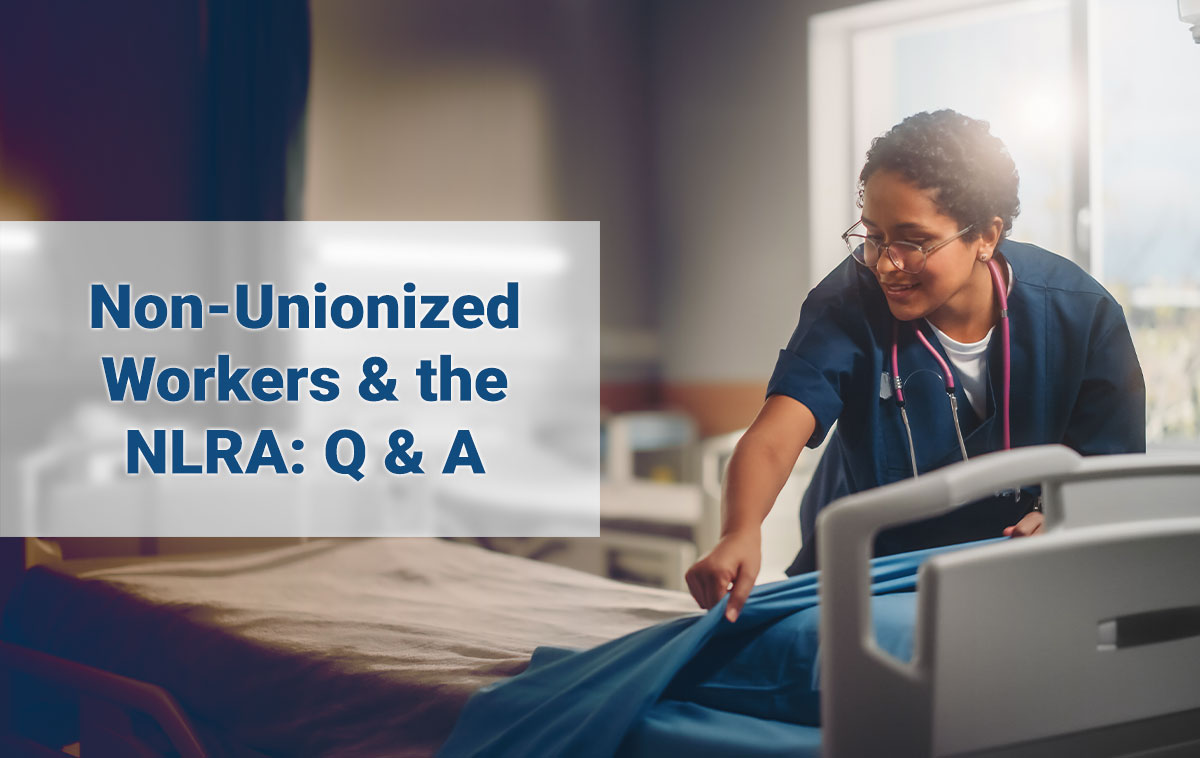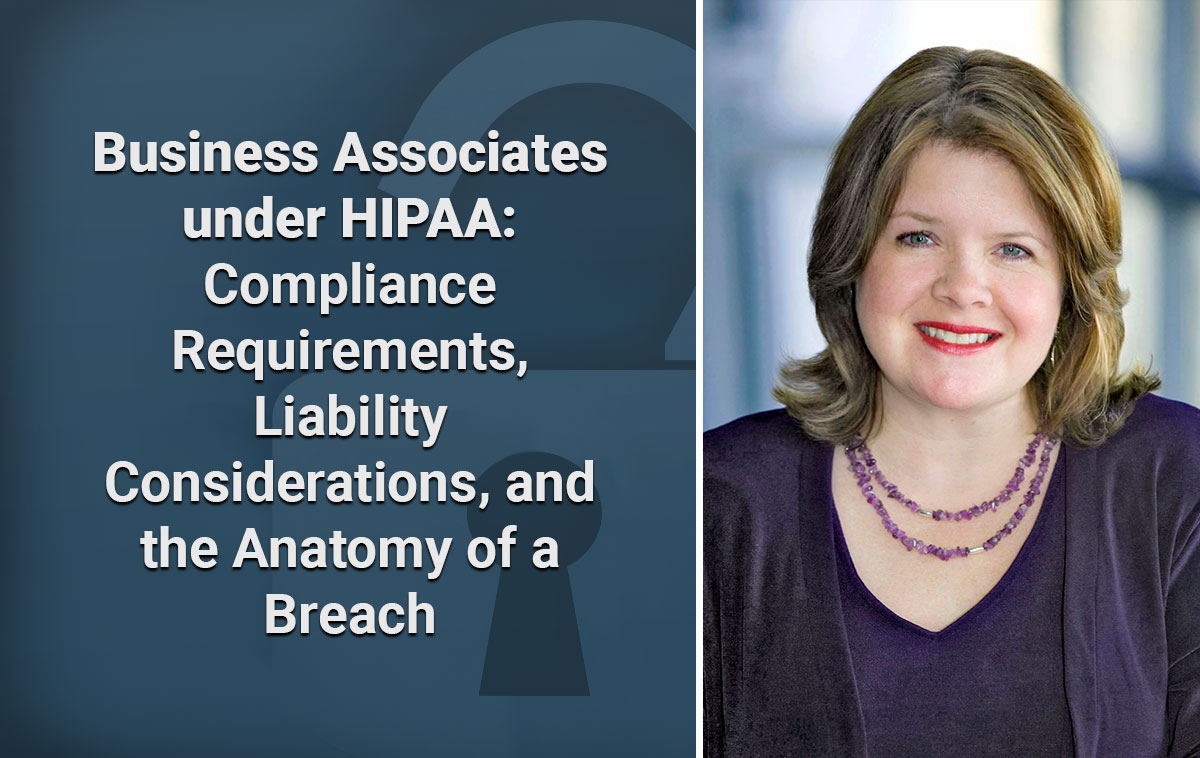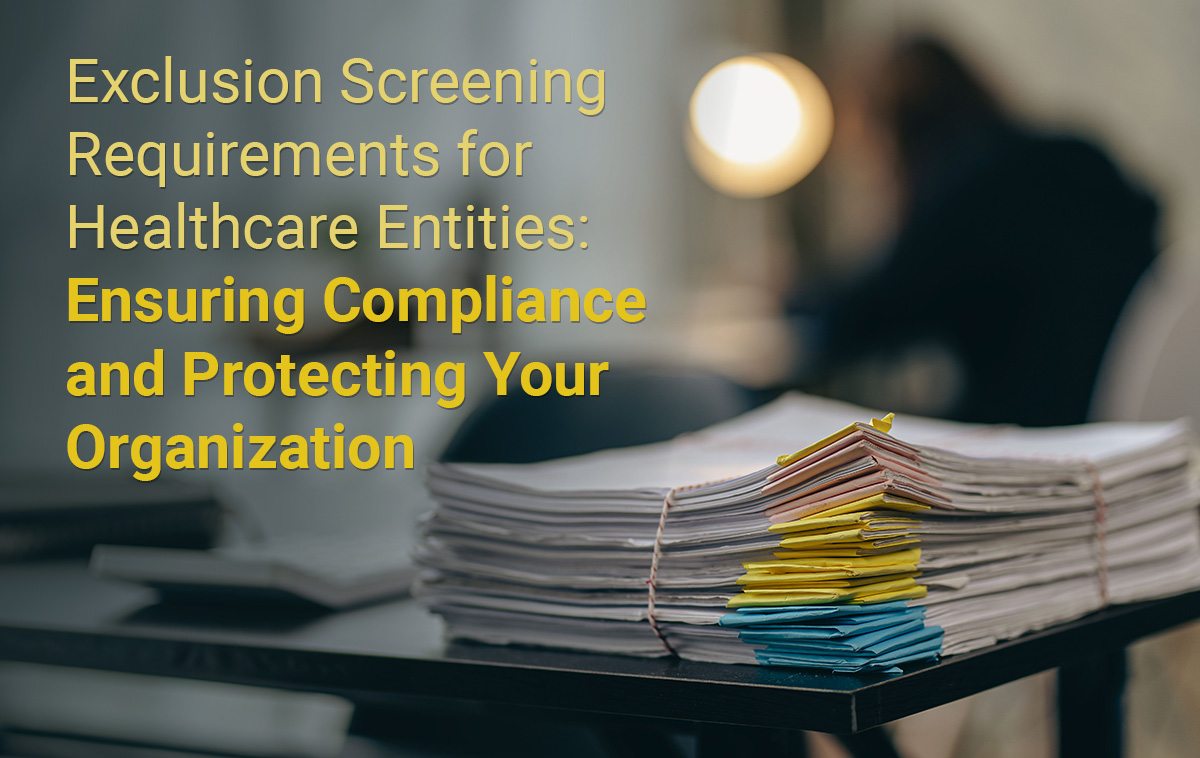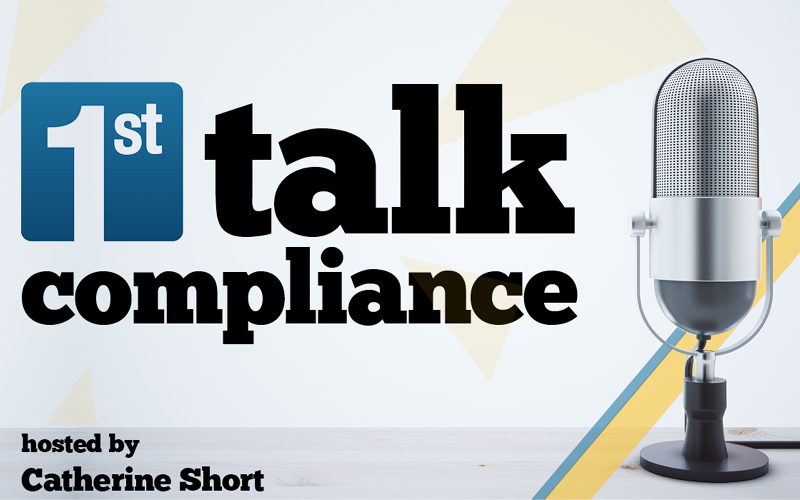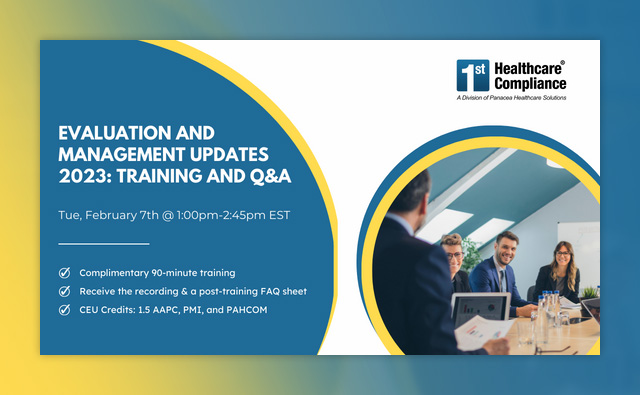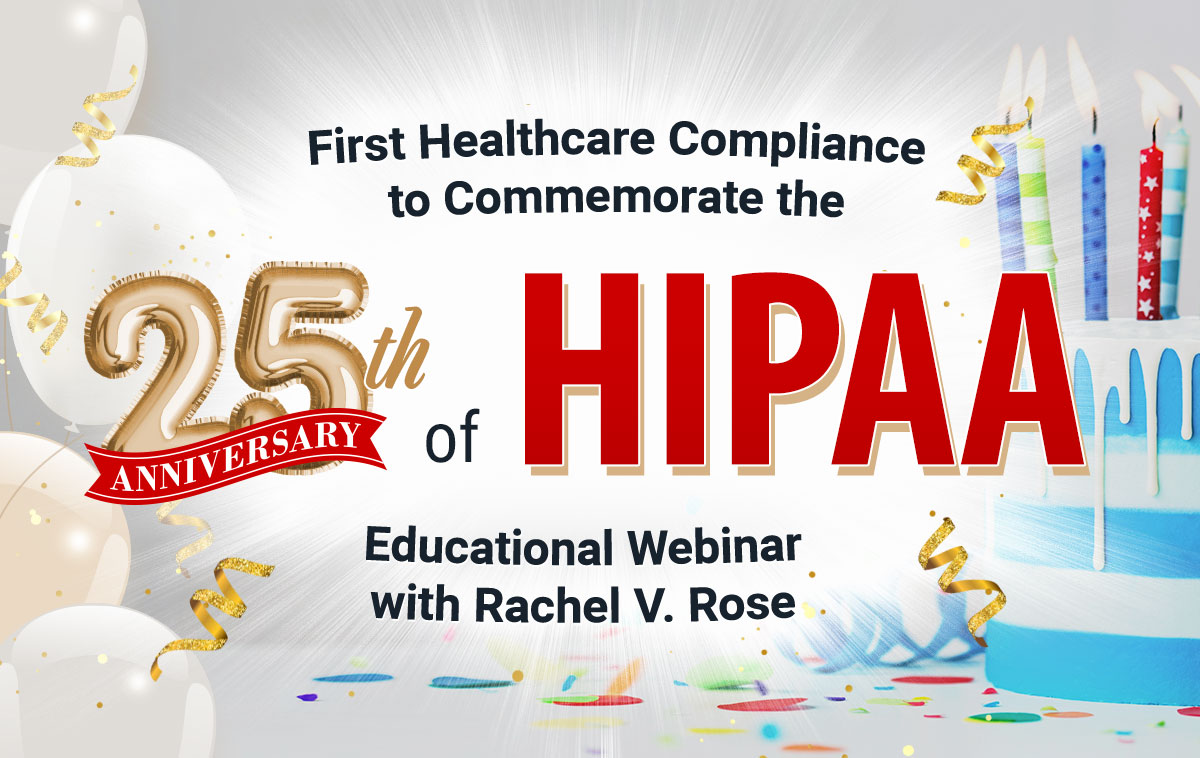Non-Unionized Workers & the NLRA: Q & A

 Lauren Moak Russell, Counsel, Young Conaway Stargatt & Taylor, specializes in the representation of employers on a range of issues relating to compliance with local, state, and federal labor and employment laws and constitutional provisions. She emphasizes client counseling—on issues ranging from wage and hour compliance, to workplace training and investigations, to effective employee terminations—with the goal of avoiding litigation before it begins. Her counseling practice includes handbook revisions, effective policy implementation, and on-site training on legal compliance. Lauren has developed and conducts specialized in-house training for emerging legal issues including the pregnancy, reproductive rights, and family care provisions of the Delaware Discrimination in Employment Act. As a member of the First Healthcare Compliance Editorial Council, Lauren is a frequent presenter at educational events. For more information regarding this topic please view the related webinar for further discussion and learning.
Lauren Moak Russell, Counsel, Young Conaway Stargatt & Taylor, specializes in the representation of employers on a range of issues relating to compliance with local, state, and federal labor and employment laws and constitutional provisions. She emphasizes client counseling—on issues ranging from wage and hour compliance, to workplace training and investigations, to effective employee terminations—with the goal of avoiding litigation before it begins. Her counseling practice includes handbook revisions, effective policy implementation, and on-site training on legal compliance. Lauren has developed and conducts specialized in-house training for emerging legal issues including the pregnancy, reproductive rights, and family care provisions of the Delaware Discrimination in Employment Act. As a member of the First Healthcare Compliance Editorial Council, Lauren is a frequent presenter at educational events. For more information regarding this topic please view the related webinar for further discussion and learning.
Below, Lauren answers some common questions and provides explanations of a few timely topics related to workplace civility, employers, and the National Labor Relations Board.
Can you give me an overview of what you are seeing in your practice regarding workplace civility, the National Labor Relations Board under the Biden administration, and the expanding influence into non-unionized work forces?
The first thing people need to understand is that the National Labor Relations Board is not just for unionized workforces, and that it has a role in regulating nonunion workforces, particularly where employer policies impact what we call Section 7 Rights. And that’s really employees’ rights to talk about the terms and conditions of their employment. And this is an area where we see a lot of ebb and flow between Republican and Democratic administrations at the federal level. I know it’s not a popular thing to talk politics these days, it’s oftentimes very inflammatory. But the reality is that the board changes its conduct very significantly between administrations. Under the Trump administration, the NLRB saw its role as very limited in terms of just regulating the relationship of the unionized workforce.
With the Biden administration, the Board again really sees its role as expansive. It is very focused on ensuring that even in a non-unionized workforce, employers are conducting themselves in a way that does not adversely impact employees’ rights. These Section 7 rights, the right to engage in what we call “Protected Concerted Activity” ensures employees the ability to talk about and advocate on terms and conditions of employment. This includes a lot of things that make employers uncomfortable, including wages and other forms of compensation, comparing how much I make to how much you make, masking, vaccination requirements, anything that keeps a manager up at night; all almost certainly touches on Protected Concerted Activity and that can be protected by the National Labor Relations Act and enforced by the Board.
Why should this topic be back on employer’s radars?
The short answer is that there’s been a change in administration. The Obama administration was very focused on the expansion of the role of the National Labor Relations Board. The Trump administration, had a much more conservative view of the role of the federal government, and really pared back the enforcement activities that the Board was engaged in. And now that we are back under a Democratic administration, that role is expanding again. I happen to be somebody who thinks that predictability is a very important thing for business.
Whether you are going to have an expansive or a retracted view of the Board’s role, and there are grounds to argue for both, it is good for businesses to know what the expectations of each of them are. The National Labor Relations Board swings much more broadly than really any other federal enforcement agency involved in labor and employment law. That’s difficult for employers to cope with. NLRB General Counsel Jennifer Abruzzo is looking to directly overturn precedent from the Trump administration, which is really only a couple of years old.
Conversely, the Trump administration looked to overturn principles, that in some cases, were decades old. This is really a problem for both sides of the aisle, I don’t think anybody is conducting themselves, necessarily in the way that provides the most predictability for business. The best we can do here, on the outside, is to make sure that employers are educated and know that these risks are out there. I’m certainly talking about it a lot more to clients and in seminars than ever before. And I was in practice under the Obama, the Trump, and now under the Biden administration. I have never seen as much effort to enforce against the non-unionized private sector, as I am seeing now. Biden has held true to his promise to be the most labor friendly president that many of us will see in our lifetimes. Even though the Obama administration expressed an interest in pursuing these matters, we’re seeing the enforcement drive from the Biden administration that was not so present before.
I know from speaking with our health care leaders, there is a lot on their plates right now and this is yet another thing to be worried about. If they could start with one item, what should it be?
I would take a very careful look at handbooks. That is an area that almost every business I represent neglects, because, it’s just there. And you know, “this other thing is an emergency,” and “I’ve got to put out that fire.” And to your point, everybody has a tremendous amount of work on their plates right now. This is the most difficult environment to operate in that I’ve ever seen, it is truly amazing that people can get up and soldier on every morning. And that’s from the management side. And from the labor side, everybody’s got a lot on their plates, too. So, if we could move the handbook to the top of your non-emergency ”to-do” list, that’s what I would do. Handbooks should really get a thorough going over every couple of years anyway. If you haven’t taken a careful look at your handbook in the last two years to update it and make sure that it’s compliant with your current labor and employment laws, that’s a great thing to do.
More specifically, in reviewing your handbook, look at policies related to workplace civility, social media, and the like, and make sure that you’re really focused on illegal behavior and not just “employees shouldn’t say things that make us unhappy.” Any policy that’s designed to keep employees from saying embarrassing things in public is going to likely be a problem. We should really be focused on “do not engage in illegal behavior.” If you are on Facebook with a picture of you and your favorite marijuana paraphernalia, that’s something we can prohibit. We can prohibit harassment and discrimination and defamation. Defamation is a tort, it is unlawful. You can prohibit defamatory conduct. But when we’re talking about general civility and being nice and be courteous, that’s tough thing to enforce.
Can you delve a little more into social media expectations?
Certainly, you can expect employees to be lawful online. This is a perfectly reasonable expectation. I have some clients who have a policy that says, “Please do not post photos of unlawful activity.” “You should not have open containers of alcohol in a vehicle.” “You should not post photos of your marijuana paraphernalia.” “You should not post racist diatribes on Facebook.” Depending on your workforce, that may or may not be something you need to say. But all of this behavior is something you can expressly prohibit.
What you can’t prohibit and what a lot of social media policies say is that you may not post anything online that criticizes the company or its customers, clients, patients, etc. That is a type of policy that the NLRB has been extremely suspicious of, and this is a good time to pare back those sorts of nebulous requirements. But, of course, in the healthcare context, we have some additional overlays. Most employees have HIPAA obligations, right. And you can absolutely say you may not post anything online that violates your duty of confidentiality under HIPAA. It’s when we’re talking more broadly, in the vein of “if you don’t have anything nice to say, don’t say anything at all” that the NLRB will become more critical.

